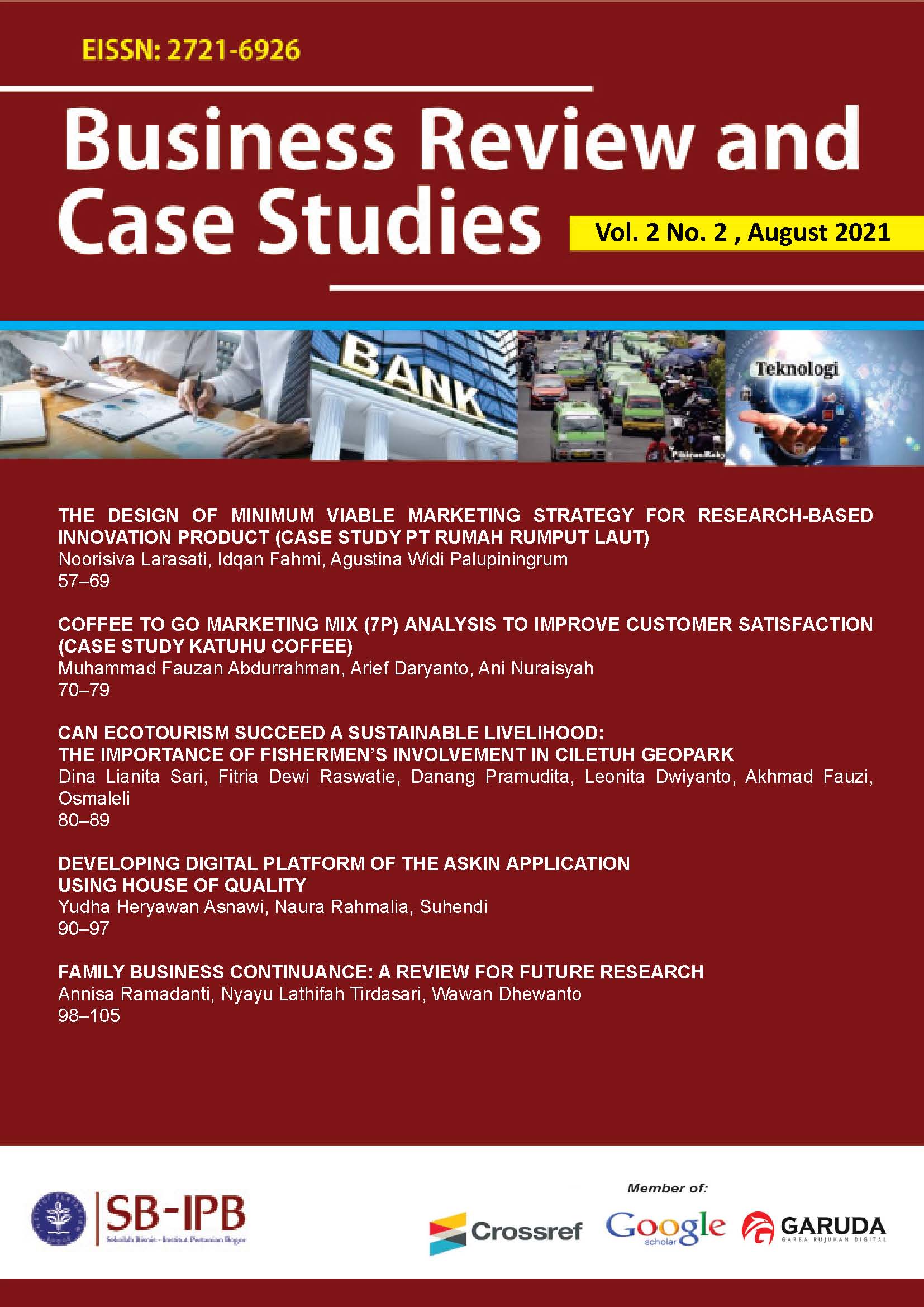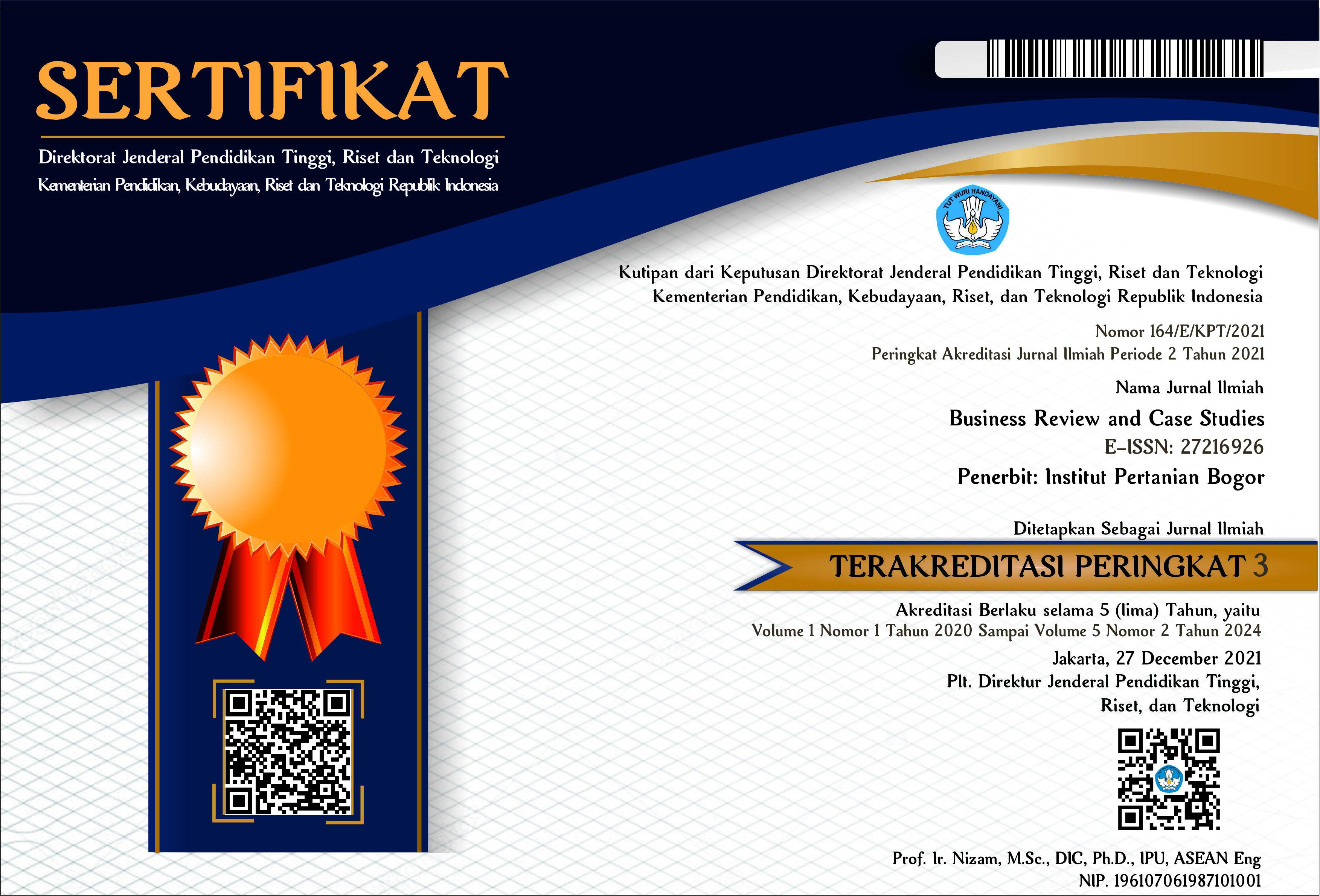The Design of Minimum Viable Marketing Strategy for Research-Based Innovation Product (Case Study PT Rumah Rumput Laut)
Abstract
The PT Rumah Rumput Laut (PT RRL) start-up in researched-based innovation produces healthy cosmetics. The high-quality standard based on innovation were not followed by the demand side. Limited market and decreasing demand for products require the strategy to survive in the cosmetics industry. This study aims to 1) evaluate the performance of PT RRL’s marketing mix, 2) analyze attributes that are important for cosmetics consumers, 3) analyze and formulate a Minimum Viable Marketing strategy design that can be applied to PT RRL. Data were collected by using a questionnaire through a survey to the internal and external (consumer and potential customer) stakeholders. The analysis was conducted with descriptive approach, IPA techniques, and benchmarking to see the assessment of the level of importance and level of performance of PT RRL products. The results showed that the internal and external stakeholders’ views about the level of importance were not matched. In addition, the attributes of the co-creation, currency, communal activation and conversation variables were the focus of improvement in the company’s Minimum Viable Marketing design. The focused attributes were discovered by implementing the BCD Strategy, which utilized website and e-mail as a marketing foundation, supported by an amplification channel that activated social media and the digital community.
Keywords: cosmetic, importance and performance level, marketing mix, minimum viable marketing, strategic management








.jpg)






